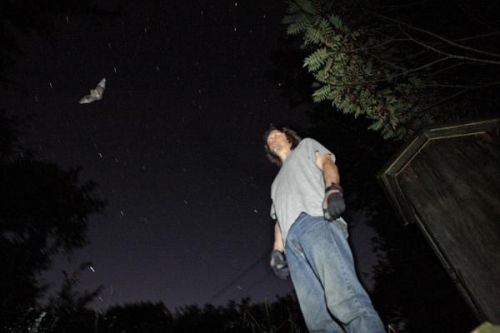Wisconsin now joins 23 other states in documenting the presence of the bat disease white-nose syndrome (WNS).

Wisconsin’s first bat biologist Dave Redell initiated a statewide monitoring program in 2007 (Photo: Rick Wood)
According to the Wisconsin Department of Natural Resources (WDNR), “On March 28th the disease was detected in a single mine in Grant County by WDNR and USGS staff conducting WNS field research and routine WNS surveillance. The presence of the disease was later confirmed by the USGS National Wildlife Health Center.”
A year ago, the disease was confirmed only 100 miles from the Wisconsin border, in Illinois. Biologists knew it would make its way into Wisconsin, despite outstanding efforts at preventing its spread. Wisconsin has taken a lead role in passing legislation to better control the expansion of WNS, passing three laws to protect bats. In 2011, the state listed the four bat species vulnerable to the fungus as threatened, and listed the fungus itself as a prohibited invasive. State law also now requires all caves to have a prevention plan, involving strict decontamination protocols for people’s clothing and gear which can spread the disease. But the disease is also spread between bats, which is tough to control.
Despite Wisconsin’s legislative efforts, it is predicted that WNS will hit the state’s bat populations hard, especially the little brown bat, currently the state’s most abundant species yet most vulnerable to WNS.
Wisconsin’s bat monitoring program is a citizen-science machine that has provided critical information about where and how many bat species are found throughout the state. With the arrival of WNS, the program will continue to be vital to effectively monitor the overall health of the bat population as bat biologists continue to seek ways to control the disease.
[Many states (including Vermont) have monitoring programs – get involved!]
